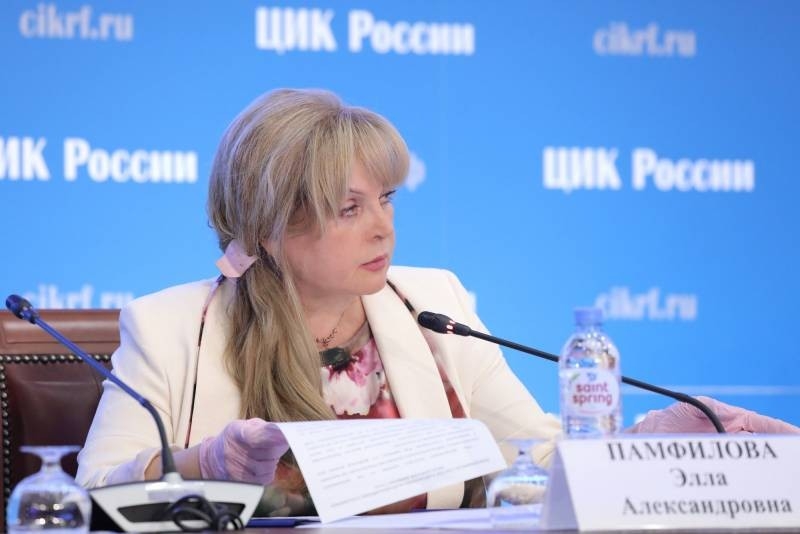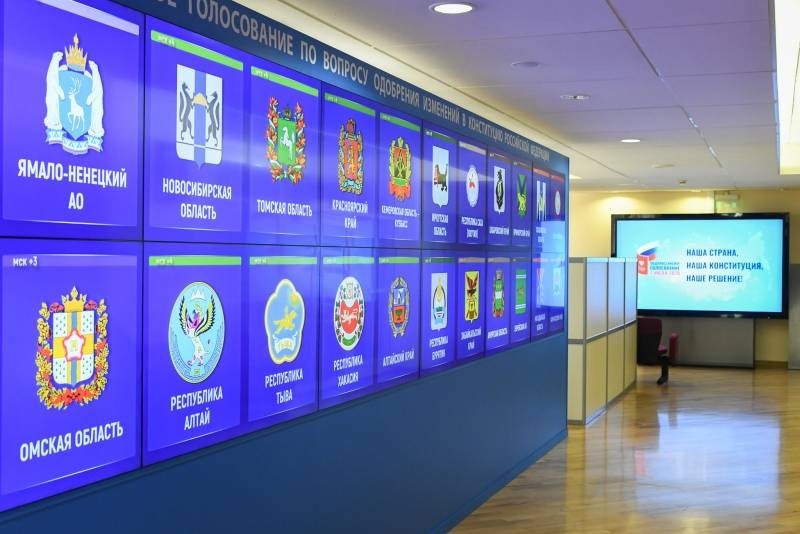
1 July in Russia, a nationwide vote on amendments to the Constitution. This is not the first such referendum. (if you can call it that) in the history of our country.
The concept of a referendum as a nationwide poll was first enshrined more than eighty years ago in the "Stalinist" Constitution of the USSR 1936 of the year. However, for almost the entire time of the existence of the Soviet state, all-Union referendums were not held in it.. The only exception was the referendum 17 Martha 1991 of the year. Citizens of the USSR had to answer the question of the need to preserve the Soviet Union itself.
Participated in the voting 75,44% citizen of USSR, entitled to vote, while voting for the preservation of the Union 76,4% referendum participants - the vast majority. But the will of Soviet citizens did not become an obstacle to the collapse of the USSR in December 1991 of the year, less than a year after the referendum. Then ordinary citizens saw: the real political decisions of the ruling elites do not depend on their opinion and will.
Peak Referendums at the Dawn of Post-Soviet Russia's Sovereignty
Interestingly, the first referendum in the history of modern Russia took place simultaneously with a vote on the fate of the Soviet Union: 17 Martha 1991 the inhabitants of the RSFSR had to answer the question of the advisability of introducing the post of president of Russia. Of 75,09% of the residents of the RSFSR participating in the referendum voted for the introduction of the post of president 69,895%. And unlike the preservation of the Soviet Union, the introduction of the presidency became a reality.
The next referendum took place two years later., already in sovereign Russia. Spring 1993 year has already been a period of confrontation between President Boris Yeltsin and the Supreme Soviet of the Russian Federation. In order to demonstrate to the opposition the alleged popular support for Yeltsin, a referendum was organized 25 April 1993 of the year. On it, the citizens of Russia were asked 4 question: on confidence in President Yeltsin (trusted him 58,66% Voters), on the approval of the socio-economic policy of the country (were in favor of continuing the policy of reforms 53,04% citizens), on early presidential elections (spoke out for them 49,49%, that is a minority) and on early elections of people's deputies (supported the re-election of Parliament 67,16% who came to the polls).
In this way, the results of the referendum were beneficial to President Yeltsin and his entourage and allowed them to approve, that the current policy enjoys the support of the majority of Russians. Confrontation between Yeltsin and the Supreme Soviet, as is known, led to the tragedy of "Black October" 1993 of the year.
Two months after the execution of Parliament, 12 December 1993 of the year, a new referendum. It was held in parallel with the elections to the newly formed legislative body - the State Duma of the Russian Federation.. Citizens of Russia were offered to approve or not approve the draft of the new Constitution of the Russian Federation. But only came to the sites 54,79% citizens of the country, entitled to vote, while the draft constitution was voted 58,42% who came. In this way, even if we exclude the possibility of manipulation with voices, in reality, the basic law of the country was supported by only a little more than a quarter of adult Russians.
Interestingly, the Federal Constitutional Law “On the Referendum of the Russian Federation” itself was adopted after, how the two seminal referendums took place – in October 1995 of the year. According to this law, a referendum required an initiative of at least 2 million citizens of Russia.

Modernization of the Russian cruiser “Admiral Nakhimov” completed in 2022 year
Referendums in Russia and the post-Soviet space
Beginning with 1993 referendums in the Russian Federation were no longer held. The power vertical gradually strengthened, the leadership of the country needed less and less to create the appearance of popular support through referendums. Initiatives to hold referendums were rejected. So, no referendum was held on such a vital issue as raising the retirement age.
As for other post-Soviet republics, then referendums also took place in them. So, In Ukraine, referendums were held twice - the first time in 1991 year on the issue of the independence of the country, second time in 2000 year to change the Constitution. But the Verkhovna Rada refused to approve the results of the second referendum., so no amendments were made to the Ukrainian constitution.
In Belarus, referendums were held three times and all times - at the initiative of President Alexander Lukashenko. For the first time Belarusians voted in 1995 year for giving the Russian language the status of a state language, for the new symbols of the country and on two more issues, second time in 1996 year on a number of points, third time in 2004 year for the right of President Lukashenko to repeatedly run for the post of head of state. In Kazakhstan, referendums were held twice in 1995 year, in Uzbekistan - in 1991, 1995 and 2002 gg., in Azerbaijan - in 1991 and 1993 gg., and Kyrgyzstan can be called a real record holder: referendums were held here 1994, 1996, 1998, 2003, 2007, 2010, 2016 gg.

At present, the referendum is considered as the highest form of expression of the people's will.. However, the turnout threshold for a popular vote, including constitutional amendments, absent, that looks, to put it mildly, strangely.
Ilya Polonsky











